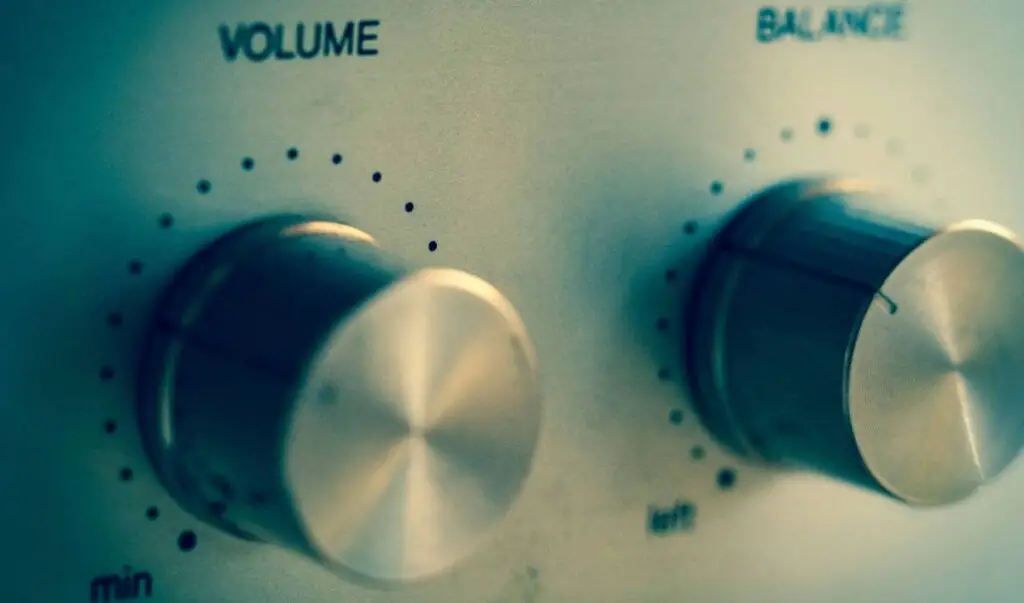The bass guitar is a heavy instrument that provides the low end in a band. Metal is a genre where instruments get tuned down and there are a lot of low-end and heavy riffs. Thus, on the surface metal seems like a great genre for the bass to shine. Yet, many of us struggle to even hear the bass at all. So, why can’t you hear the bass in metal?
In general, the bass is difficult to hear in metal due to how it blends together with the guitars. Both the bass and the guitars tend to use distortion and deeper tunings. Metal bassists also often play a similar part as the rhythm guitarist. This makes it difficult to distinguish the bass from the guitars and subsequently to hear it.
So while you might think you aren’t hearing the bass, oftentimes you actually are. Even if you can’t make out the bass distinctly you are still feeling it, and it is still adding drive and power to the song.
But how come they don’t just turn up the bass? And why don’t metal bassists just play differently from the rhythm guitar then? Turns out, being a metal bassist is not as simple as one might think.
Why is it hard to hear the bass in metal music?
Basses have a frequency range of 40hz to 200hz. As practically all other instruments play at higher frequencies they will feel like they are “on top” of the bass. This results in the bass being the last instrument that our ears pay attention to.
The human ear also struggles to distinguish between harmonic changes at deeper ranges. Thus, when you think that you can’t hear the bass in a song, you are usually still feeling it.
These are general reasons why the bass is hard to hear. Here are some reasons why bass is hard to hear in metal specifically:
- Distortion – Metal bassists often use distortion to get an even heavier sound. However, the reason distorted basses become hard to hear has equally much to do with the guitars being distorted as the bass. Distortion makes it harder to make out what is being played in general. Furthermore, it makes the guitars and bass sound similar, making them harder to distinguish from one another.
- Root Notes – Playing metal as a bassist often consists of playing root notes and following the rhythm guitar. This is understandable, as many sub-genres like Power-Metal and Melodic Death-Metal rely on this playstyle to create drive and power. However, this leads to the bass being less distinguishable as it is doubling the rhythm guitar, rather than playing a distinct bassline. Thus, when you think you are just hearing the guitar, you might actually be hearing a mix of the guitar and the bass.
- Deeper tuning – Remember the part above about the human ear struggling to hear clearly at deeper frequencies? Well, in metal, instruments are often tuned even deeper to tunings such as Drop D. Furthermore, bassists commonly use 5-string basses in metal. These have a low B string, as opposed to a low E string. While this makes the music sound heavier, it also makes it even harder to hear the bass.
- Guitar EQ – Metal guitarists can feel like they are getting a heavier sound when they turn up their low end. While this is true, this doesn`t make the sound of a band as a whole heavier. When guitarists EQ their sound this way, it leads to the guitars and basses playing at similar frequencies and thus clashing. This in turn makes it harder for our ears to separate the instruments from one another.
Related reading: Are 5-string basses necessary to play metal?

Metal bands with heavy bass
While some metal bands have a bass that’s difficult to distinguish in the mix, there are also many bands where you can hear it clearly. Listening to these bands is great for learning what the bass is capable of in metal, but also doubles as an exercise in how to hear the bass better in general.
In the table below I have listed 10 metal bass players with a heavy bass sound that you will clearly be able to hear. They all use different techniques for making their basslines audible. However, you will see that many of them carry some similarities as well:
| Bassist | Band | Style | Sound |
| Alex Webster | Cannibal Corpse | Fingerstyle | Percussive and clanky death metal sound that is audible the mix. Basslines are occasionally melodic and the bass is mixed loud. |
| Ryan Martinie | Mudvayne | Fingerstyle / Slap | Cuts through the mix by slapping and playing melodic lines that don’t mimic the guitar |
| Jeroen Thesseling | Obscura | Fingerstyle | Tremendously melodic playing that differs from the guitar. The Bass is loud in the mix. |
| Rex Brown | Pantera | Pick | Bass sound that’s distinguishable from a single guitar. Bass parts often differ from guitar parts, making them more noticeable. |
| Steve Harris | Iron Maiden | Fingerstyle | A metallic and clanky bass sound that is clearly distinguishable from the guitars. Also plays melodic lines and is loud in the mix. |
| Geezer Butler | Black Sabbath | Fingerstyle / Pick (rarely) | A boomy sound that is distinct from the guitar. Melodic elements that cut through the mix. |
| Stephen Frimmers | Necrophagist | Fingerstyle | A varying sound; often metallic which cuts well through the mix, especially when guitars are playing leads. Bass also plays melodic parts that are easy to hear. |
| Andreas Blomquist | Seventh Wonder | Fingerstyle | Bass is loud in the mix and incorporates melodic parts on occasion. |
| David Ellefson | Megadeth | Pick | A clanky sound that is distinguishable from guitars. The Bass is somewhat loud and incorporates complex melodies. |
| Justin Chancellor | Tool | Pick | Pick style sound under a single guitar. Usually plays a distinctly different part than the guitar player. |
One major takeaway is that whether a band has 1 or 2 guitarists has a major impact on the bassist. This is often the difference between writing original basslines or copying the rhythm guitarist.
Then again, Steve Harris of Iron Maiden is one of the most iconic bassists ever.
He has 3 guitarists in his band, yet Harris` P bass tone cuts through them all like it was nothing. Thus, while more guitarists make it harder for the bass to be noticed, it still largely depends on the sound of the band as a whole whether the bass will be drowned out or not.

Do you need bass in metal?
The bass is a staple instrument in metal music as it prevents songs from sounding hollow and light. It is possible for metal bands to not have a bass player by tuning their guitars deeper, or by having a keyboard player fill the role of a bassist. Some bands elect to ignore the lack of low end altogether.
Animals as Leaders is a band with 2 guitarists and a drummer, that have done well for themselves. While the fact that they don’t have a bassist is arbitrary, they do play 7-string guitars that make it possible to achieve a heavy sound, even without a bass.
Some genres of metal are also less reliant on bass than others.
Many Black Metal bands recreate the sound of early acts in the genre where there was little or no bass. This is an aesthetic choice and this lack of bass has become a defining trait of black metal.
Some bands also prefer the rawness and demo-like quality that the lack of a bassist provides. Most notably, Pig Destroyer is a Grindcore act that did well without a bassist for decades.
So it is possible to not have a bass player in a metal band, and some bands have succeeded without one. However, lacking low end is extremely defining for the sound of a band and most listeners find it difficult to feel and understand music that lacks bass.
Conclusion
The bass is already an instrument that we tend to feel, rather than hear. In metal, it becomes even more difficult to hear what it is playing, in large part due to the guitar’s effects and EQ.
A modern metal sound relies a lot on the bass doing an ungrateful and simple job. When all the instruments in a band are set up as heavily as possible, it is paramount that the bass is able to add a low-end sound that is in line with this tone.
Many great metal bassists have deviated from just copying the guitar though. This has been done in many different ways, but in general, it is a lot easier to have a more distinct bass sound in bands with just 1 guitar player.
Whether the bass blends in with the guitars or plays its own melodic lines, it still remains a staple instrument in metal. While we might think we have a hard time hearing it, we surely would miss it if it was gone.

